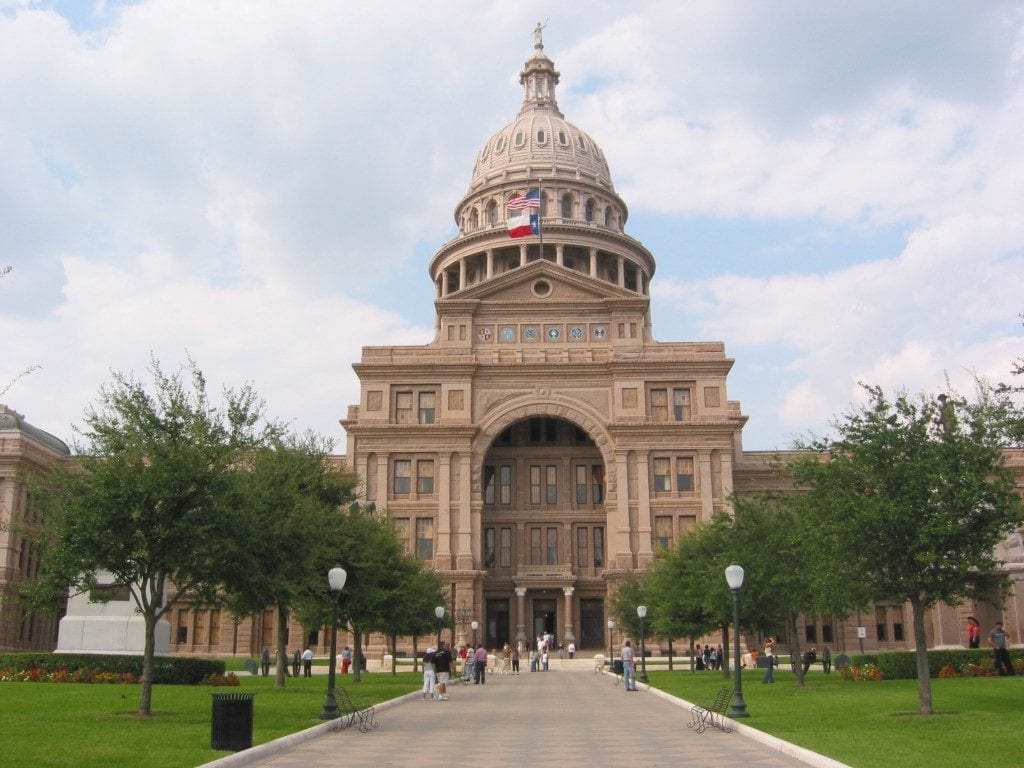
Return to March 2022 newsletter
Note: Content below was posted and current as of March 16, 2022
Around the Texas Capitol:
House committees get charges, primary election wrap-up
By Lauren Fairbanks, Shayne Woodard and J Pete Laney
TAD Governmental Affairs
Texas House Speaker Dade Phelan has indicated he’s ready for House members to get to work, now that the primary elections are over except for a number of runoffs (more on this below).
Phelan recently issued interim charges, which reflect a variety of issues facing the state and build upon the work accomplished during the most recent legislative sessions. The charges will help guide the House heading into the 88th Legislature, set to begin in 2023, as committees gain input from Texans, research potential legislative solutions and recommend policies to the full House chamber.
Your Texas Association of Dairymen governmental affairs team will be monitoring any charges that could potentially impact Texas farmers and the dairy industry. You can find the full slate of House interim charges here.
Senate interim charges are anticipated in the coming weeks.
In addition to releasing interim charges, Phelan also announced the creation of the House Interim Study Committee on Criminal Justice Reform and the House Select Committee on Health Care Reform. These committees were established to dedicate extra attention to the policies that influence outcomes in the state’s criminal justice and health care systems.
Wrap-up: Texas primary elections
The March 1 primary election results gave us a good indication of what is to come in the May 24 primary runoffs, the Nov. 1 general election and, beyond that, the 2023 Legislative Session.
Some key takeaways and specific race details are included below. Additionally, you can view our Election Returns document that highlights who won their party’s nomination in each race.
Low voter turnout
Voter turnout during a midterm election is historically low, even when the governor and other prominent statewide officials are on the ballot. This trend has been steadily climbing since 2008. In addition to low turnout, an estimated 2 million Texans eligible to vote aren’t even registered. Unofficial results show 11.63% of the state’s registered voters cast ballots in the Republican primaries. On the Democratic side, 6.69% of registered voters cast ballots. For comparison, in the 2018 midterm primary election, 10.16% of registered Republicans and 7.01% of registered Democrats voted.
Harris County plagued with vote counting challenges
Shortly after polls closed at 7 p.m. on election night, Harris County election officials informed the Secretary of State that they would not be able to count and report results for all early and Election Day votes by the statutory deadline. Under Texas law, all Texas counties are required to report results within 24 hours of polls closing on election night. Ultimately, it took Harris County 28 hours to report (compared to only seven hours in 2018). In addition to the challenges on election night, Harris County officials announced days later that they had mistakenly left 10,000 votes off the county’s vote tally. County commissioners have voted to bring in a third-party consultant to review the county’s elections operations and make recommendations for improvement for the remaining 2022 elections. The election administrator has announced she will resign effective July 1.
Good night for [most] incumbents
While a handful of incumbents were forced into a runoff, the vast majority sailed to their respective party’s nomination. Few will face a formidable opponent in the November general election, making their reelection bids a success. On the Republican side, Gov. Greg Abbott again won the nomination for governor after facing down two very vocal far-right opponents, Lt. Gov. Dan Patrick won with ease, and an attempt to unseat Agriculture Commissioner Sid Miller was unsuccessful. Ken Paxton had three strong challengers and was forced into a runoff, but second place finisher George P. Bush ran 20 points behind. In the Senate, no incumbents lost their seat to a primary challenger. In the House, one sitting Democrat, Art Fierro (El Paso) lost, and no incumbent Republicans lost outright. Four incumbents’ fate will be determined in the runoff.
Looking ahead to 2023 legislative session
In the Senate, only a handful of Senate incumbents faced challengers, and all won their respective party nomination. Five freshman senators are headed to the chamber come January 2023. One Senate seat is expected to be a hotly contested race in the November general election and will determine whether an incumbent will return or there will be six freshmen in the Senate. In the House, 26 members announced their retirement or plans to run for higher office, leaving those seats open. Four incumbents will determine if they’ll return to the Legislature in the May 24 runoff. While most incumbents face little or no opposition in November, an incumbent faces a hotly contested race in about a dozen seats. It remains to be seen, but Speaker Phelan’s prediction of 40 new members in the next session is getting closer to reality.
Primary election overview
Statewide Races
- Governor. Republican Greg Abbott handily beat two right-wing challengers, avoiding a runoff by a large margin. Democrat Beto O’Rourke also sailed to victory. The two will face off in the general election in November
- Attorney General. A race to watch as incumbent Ken Paxton faces off against former Land Commissioner George P. Bush in the runoff. Bush and Guzman were neck-and-neck throughout the night, but Bush ultimately prevailed. Bush was able to gain the edge, in part, by surpassing Guzman in the Rio Grande Valley, Dallas, El Paso, San Antonio, Fort Worth and some suburban counties such as Collin, which is near Dallas, and Williamson, adjacent to Austin. Bush has said he will fight for Guzman’s and Gohmert’s voters to defeat Paxton in the runoff, but Gohmert voters are likely to align more closely with Paxton than Bush.
- Lt. Governor. Republican Dan Patrick cruised to victory. Former candidate Mike Collier will face former state representative Michelle Beckley in the Democrat primary runoff.
- Land Commissioner. Republican Dawn Buckingham held a large margin over her opponents but was unable to break the 50% threshold needed to avoid a runoff, where she will face Tim Westly. He received 14.7% of the vote to Buckingham’s 41.3%
- Railroad Commissioner. Incumbent Republican Wayne Christian held a large margin over his opponents but was ultimately unable to break the 50% threshold needed to avoid a runoff. He will face off against attorney Sarah Stogner in the runoff. Stogner received 15.1% of the vote to Christian’s 47.1%.
- Agriculture Commissioner. Incumbent Republican Sid Miller won outright.
Texas Senate
- All incumbents with a primary opponent won.
- SD 10. Republican Phil King held a strong lead over his opponent all night and will face incumbent Democrat Beverly Powell in November. Redistricting shifted this seat from a D-leaning to an R seat.
- SD 11. Republican Mayes Middleton won the primary outright, beating three other candidates by a large margin. He was endorsed by Dan Patrick. (Larry Taylor, retiring)
- SD 12. Republican Tan Parker defeated his opponent and is expected to win in November. (Jane Nelson, retiring)
- SD 15. After announcing he will run for Houston mayor in 2023, incumbent Democrat and Dean of the Texas Senate John Whitmire drew a primary challenger. He ultimately prevailed.
- SD 24. Republican Pete Flores is headed to a runoff with Raul Reyes. Flores briefly served in the Texas Senate after winning a special election in 2018 in a historically Democrat seat. He has been endorsed by Dan Patrick and Dawn Buckingham. (Open seat, Dawn Buckingham running for higher office).
- SD 27. In the Democrat primary, Morgan LaMantia and Sara Stapleton-Barrera are headed to a runoff. Redistricting shifted this seat from a D seat to an R-opportunity seat. The winner in the Democrat primary will face off against Republican Adam Hinojosa in the November general election. (Eddie Lucio, retiring)
- SD 31. Heavily favored Republican Kevin Sparks won this four-way contest without a runoff. He was endorsed by Dan Patrick and Donald Trump. (Kel Seliger, retiring)
Texas House
- Four incumbents were pushed to a runoff.
- HD 12. Republican incumbent Kyle Kacal faces Ben Bius in the runoff. Kacal’s district boundaries shifted drastically in redistricting, adding several counties that he had not previously represented.
- HD 60. Republican incumbent Glenn Rogers will face Mike Olcott in the runoff. Roger’s district boundaries shifted drastically in redistricting, adding several counties that he had not previously represented.
- HD 85. Republican incumbent Phil Stephenson is headed to a runoff against Stan Kitzman.
- HD 91. Republican incumbent Stephanie Klick will face David Lowe. Klick faced four challengers running to the right of her. She led Lowe by 10%.
- Eighteen open seats with a large number of candidates are headed to a runoff including:
- HD 17 (John Cyrier, retiring)
- HD 19 (New Hill Country district)
- HD 22 (Joe Deshotel, retiring)
- HD 23 (Mayes Middleton, Senate candidate)
- HD 37 (Alex Dominguez, Senate candidate)
- HD 52 (James Talarico, HD 50 candidate)
- HD 61 (Phil King, Senate candidate)
- HD 63 (Tan Parker, Senate candidate)
- HD 70 D & R (Scott Sanford, retiring)
- HD 73 (Kyle Biedermann, retiring)
- HD 84 (John Frullo, retiring)
- HD 93 (Matt Krause, Tarrant Co DA candidate)
- HD 100 (Jasmine Crockett, CD 30 candidate)
- HD 114 (John Turner, retiring)
- HD 122 (Lyle Larson, retiring)
- HD 133 (Jim Murphy, retiring)
- HD 147 (Garnet Coleman, retiring)
- HD 31. Incumbent Ryan Guillen, who switched parties from D to R, won his seat outright. Redistricting shifted this seat from a D to R seat.
- HD 79. Incumbent Democrats Art Fierro and Claudia Ordaz Perez faced off in this contentious race after redistricting pitted the two against each other. Ordaz Perez handily defeated Fierro by a margin of 65.1% to 34.9%.
Other election news
- State Rep. Garnet Coleman (D-Houston) of House District 147 announced he would resign effective Feb. 28. Coleman had previously announced he would not seek re-election. Abbott announced May 7 as the special election date for seat. Candidates had to file to run by March 7. Early voting begins April 25.
- Abbott also has set May 7 as the special election day for two proposed amendments to the Texas Constitution:
- PROPOSITION 1: The constitutional amendment authorizing the Legislature to provide for the reduction of the amount of a limitation on the total amount of ad valorem taxes that may be imposed for general elementary and secondary public school purposes on the residence homestead of a person who is elderly or disabled to reflect any statutory reduction from the preceding tax year in the maximum compressed rate of the maintenance and operations taxes imposed for those purposes on the homestead.
- PROPOSITION 2: The constitutional amendment increasing the amount of the residence homestead exemption from ad valorem taxation for public school purposes from $25,000 to $40,000.
Return to March 2022 newsletter


